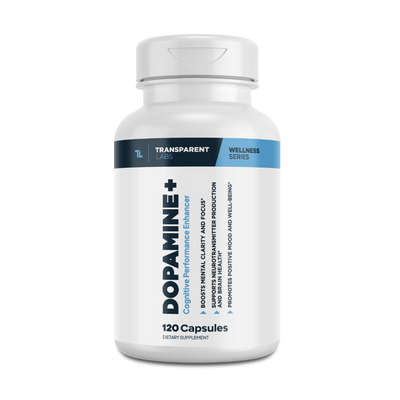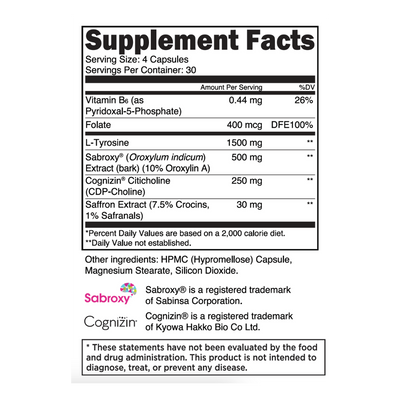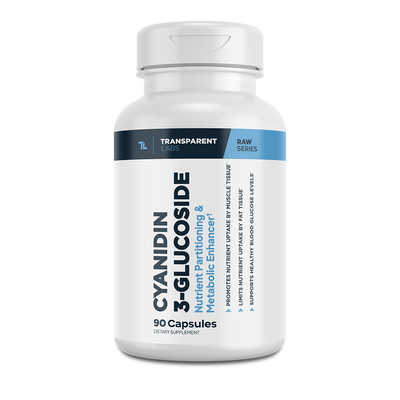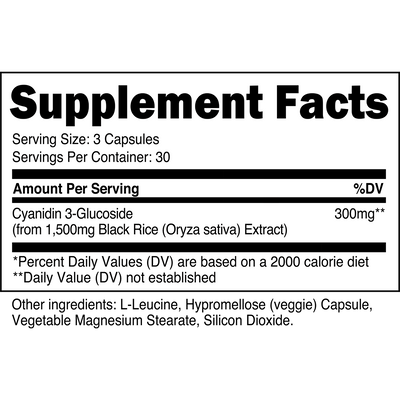5 Evidence-Based Supplements for Building Muscle After 60

What Are the Best Supplements for Building Muscle as an Older Adult (60+)?
As you age, you may be wondering what you need to do to build and maintain muscle mass. Not only is building muscle important for strength, but it plays a big role in the aging process and becomes very important for older adults.
To make sure your workouts are being put to good use and you’re getting maximum gains, you’ll want to focus on getting adequate nutrition through food and dietary supplements.
This article outlines five of the best supplements for building muscle after 60.
Understanding the Need for Building Muscle and Maintaining Muscle Mass After 60
As cliche as it sounds, the notion of “use it or lose it” really applies to our muscles. As we age, we begin to gradually lose lean muscle mass if we aren’t regularly exercising (resistance training) and meeting our protein needs (1).
The Role of Muscles in Aging
Muscles are important for many aspects of our lives. They help us perform day-to-day activities like lifting a laundry basket or bringing in our groceries. They’re also important for balance, which older adults struggle with as they age.
Having strong muscles has been associated with better health outcomes, too. For instance, a 2018 study found that older adults with lower muscle strength had significantly higher rates of all-cause mortality (2).
What’s more, skeletal muscle mass is linked with lower rates of cardiovascular disease and other chronic health issues, such as inflammation, insulin resistance, and overweight and obesity (3).
Finally, recent research suggests that training our muscles has anti-aging benefits, particularly in improving skin elasticity and skin thickness (4).
Impact of Age of Muscle Mass
Between our 30s and 40s, our muscle mass starts to slowly decline at an average rate of 3-8% per decade. Unfortunately, this rate goes up even more after 60 years of age, and by age 70, it goes up to 15% per decade (5).
This is due to sarcopenia, or age-related muscle loss, which is a natural part of the aging process. Many factors accelerate muscle loss, such as physical inactivity, lower levels of protein and vitamin D, inflammation, and slower cell turnover (6).
While you can’t prevent this completely, your lifestyle plays a big role in how fast and drastic this happens. In particular, making sure you continue to build and maintain muscle through resistance training and good nutrition is essential.
Important Supplements for Building Muscle After 60
If you’re not providing your muscles with the nutrients needed to build muscle mass, it’s going to be challenging to see results. Here are supplements for building muscle after 60 you may want to consider.
Protein Powder
If there is one nutrient you need to pay attention to for muscle building, it’s protein.
To build and maintain muscle mass, our bodies rely on protein and its amino acids for muscle protein synthesis. Insufficient protein may cause you to lose muscle mass and you will struggle to build any muscle, despite your efforts in the gym.
To date, research suggests adults over 50 need close to 0.55–1.0 grams per pound body weight per day (1.2–2.2 grams per kilogram of body weight per day) to preserve muscle and promote muscle protein synthesis (7, 8, 9, 10).
To put this into perspective, if you weighed 175 pounds (79.3 kg), you would need between 95–175 grams of protein per day.
While you can get enough protein through your diet, it can be a challenge for those who require higher amounts to build muscle mass. This is where a high-quality whey protein powder like Transparent Labs 100% Grass-Fed Whey Isolate may be helpful, which should provide between 20–30 grams per serving and all essential amino acids.
To date, the best and most well-studied protein powder is whey protein, which has been found to support muscle building and maintaining our lean body mass. Most often, it's consumed as a protein shake but can also be added to smoothies, oatmeal, and other foods.
In addition to a whey protein supplement, be sure to include resistance training into your exercise routine a few times per week to help gain muscle.
Creatine (Monohydrate)
Creatine, or creatine monohydrate, is another popular supplement that has a lot of research to support its use. It works by providing the muscles with energy during periods of heavy lifting.
It has been shown in numerous studies to increase muscle strength and muscle mass when paired with a proper strength training program (11, 12, 13).
By supplementing regularly with creatine, you are increasing your body’s stores of phosphocreatine, which helps to produce more energy known as adenosine triphosphate (ATP). This can help maximize your strength training workout, leading to better results and greater muscle protein synthesis (11).
In fact, a 2021 review found that supplementing with creatine led to significant increases in muscle mass and strength in adults 50 years and older (14).
Vitamin D
Known as the “sunshine vitamin”, vitamin D is an essential nutrient for people of all ages.
In fact, people with vitamin D deficiency are at higher risk of age-related muscle loss, or sarcopenia. Vitamin D supplementation is also associated with a reduced risk of osteoporosis, cardiovascular disease, type 2 diabetes, depression, cognitive decline, and frailty (15, 16,17).
Vitamin D is involved in skeletal muscle synthesis and function. It also plays a key role in bone health by supporting calcium absorption, which can reduce the rate of bone loss that naturally occurs with aging (15).
While you can naturally produce vitamin D with sun exposure, most older adults are deficient.
Therefore, it’s generally recommended to take a vitamin D supplement with 600 IU or greater for older adults after the age of 50. Though, in many cases, higher doses may also be required based on your individual needs, diet, and geographical location (15).
Omega-3s
Omega-3 fats have many health benefits, such as supporting healthy joints, muscles, and skin. They’re also important for brain health and preventing cognitive decline and neurological diseases (e.g., dementia, Alzheimer’s) (18, 19).
Studies have found that supplementing with omega-3 fats, especially in phospholipid form, may reduce overall joint pain related to osteoarthritis thanks to their anti-inflammatory properties. Considering joint pain is a common deterrent for exercise, this may be helpful as you age (20, 21).
Some research has also found a connection between omega-3 fats and building muscle (22).
It’s important to know that there are different types of omega-3 fats, with EPA (eicosapentaenoic acid) and DHA (docosahexaenoic acid) being the most important for health benefits.
Unfortunately, common food sources of omega-3s, such as nuts, seeds, and oils are high in ALA (alpha-linolenic acid) and are poorly converted into EPA and DHA in the body. The two main sources of EPA and DHA in the diet include fatty fish and algae.
While there is no general recommended daily intake for EPA and DHA, aiming to get 250–500 mg of EPA and DHA combined is a good daily goal (18).
Beta-hydroxy beta-methylbutyrate (HMB)
Better known as HMB, beta-hydroxy beta-methylbutyrate is a naturally occurring compound found in the body.
It’s also an emerging supplement that may help increase muscle strength, support muscle building, prevent muscle loss, and reduce fat mass when used in combination with strength training (23).
Interestingly, it’s thought that HMB may support building muscle in older adults and prevent muscle loss related to sarcopenia (23).
However, it seems to provide the most benefit in older adults or those who are new to strength training and resistance exercise. Those who are experienced exercisers or competitive athletes may not find HMB as beneficial (24).
Safety and Precautions When Using Supplements for Building Muscle After 60
It’s important to remember that nutritional supplements do not come without any risks. Here are some things to consider.
Potential Side Effects
Popular supplements such as protein, creatine, omega-3s, and vitamin D are generally recognized as safe (25).
In fact, protein powders and creatine monohydrate have been studied for decades, with most short-term and long-term studies on protein and creatine supplementation finding them to have high tolerability (25, 26).
While rare, some side effects have been reported in some people, including nausea, diarrhea, vomiting, and water retention (25, 26).
Often, negative side effects are related to those with pre-existing health conditions when dosage instructions are not followed, or they’re combined with other harmful substances (26).
Consulting a Healthcare Professional
Before taking a new supplement, it’s best to discuss this with a healthcare provider, such as a registered dietitian or medical doctor.
They can review your health history and goals to determine if taking a supplement is right for you.
If you have a chronic disease or are taking any medications, it’s especially important to consult a healthcare provider.
Incorporating Supplements into a Balanced Diet

Balancing Protein Intake
While protein powder can be helpful, it’s best to get most of your protein intake through food first to help maintain healthy muscle mass.
Depending on your goals, you may need between 20–40 grams of protein per meal, which you can achieve through a variety of high-protein foods such as beef, chicken, pork, fish, tofu, and tempeh. These foods are considered whole proteins, since they contain all the essential amino acids.
Plant-based proteins are also helpful and can contribute to your protein intake, such as beans, lentils, seeds, and pea protein.
You may wish to supplement with a protein powder, such as whey protein, between meals or post-workout to ensure you reach your protein goals.
Maintaining a Healthy Diet and Body Weight
Eating a variety of minimally processed, nutrient-dense foods should be a goal for anyone but especially for healthy aging in older adults.
This includes eating foods rich in protein, fiber, complex carbohydrates, and healthy fats. It also means eating plenty of vegetables and fruit, which will provide additional nutrients and antioxidants.
By eating a diverse diet, you’re ensuring you’re getting a variety of nutrients as part of a healthy diet.
Further, focusing on foods that are minimally processed can help you avoid eating too much sugar, salt, and unhealthy fats, which can support healthy weight loss if that's a goal for you.
To help, try to prepare most of your meals from home as much as possible and aim to have a variety of foods on your plate.
FAQ - Frequently Asked Questions
Here are some common questions about supplements for building muscle after 60 and other helpful tips.
What are some effective exercises for building muscle after 60?
Strength training and resistance exercise should be a priority for muscle growth and maintaining muscle mass after age 60.
While individual needs will be different, aim to do strength training exercises that cover each major muscle group a few times per week. Resistance training is also important for maintaining a healthy body weight, which is another important aspect of healthy aging.
What are the best supplements for weak muscles?
Weak muscles need to be challenged in order to get stronger, which is why strength training exercise is important. To support the recovery process, make sure to get enough protein in your diet and through a protein powder, as needed.
What supplements are recommended for building muscle in women over 60?
Protein powder supplements can be useful for women looking to build muscle, since it may be difficult to meet their protein needs through food alone.
What is the best supplement for men over 60 to build muscle?
Protein powder will help support muscle growth and maintenance, especially if you’re not able to eat enough protein-rich foods to meet your protein requirements. Other supplements, such as creatine monohydrate, may also support muscle building and physical performance.
What is the recommended daily protein intake for building muscle after 60?
Generally speaking, it’s recommended to get 0.55–1.0 grams per pound body weight per day (1.2–2.2 grams per kilogram of body weight). If you’re looking to build muscle mass, aim for the higher end of this. Protein supplementation may be helpful for those who can't meet their needs through food alone.
Do protein supplements contain all the essential amino acids?
Most protein supplements provide all essential amino acids, which we cannot produce ourselves and must get through food or supplement. Popular protein powders such as whey protein, contains all essential amino acids.
Can you build muscle without resistance training?
In order to build muscle, your muscle tissue needs to be challenged and stressed. This allows for small microscopic tears in muscle cells which are then rebuilt larger and stronger to support new challenges.
Eating a diet high in protein may help to prevent muscle loss, but will not help you build muscle if you do not include strength training in your workout routine.
Key Takeaways
Building and maintaining muscle is an important aspect of healthy aging in older adults.
In addition to a solid strength training program, it’s important to get in the right nutrients to support muscle recovery and muscle growth.
Some popular supplements to consider include protein, creatine monohydrate, vitamin D, omega-3s, and HMB. However, you should run it by your healthcare provider to make sure taking a supplement is right for you.
By supporting your muscles with good nutrition and supplements, you can continue to build muscle for years to come.








